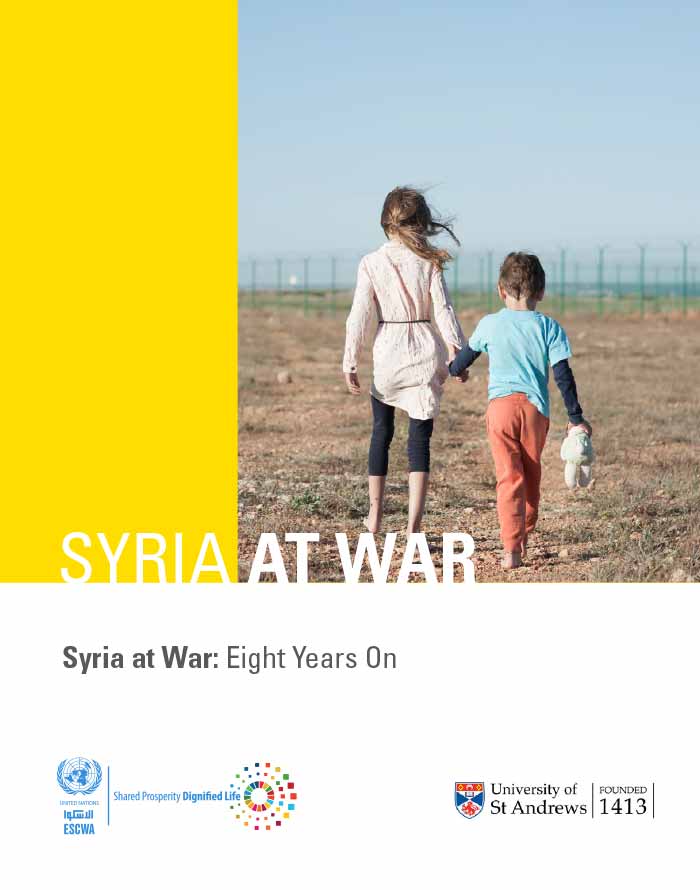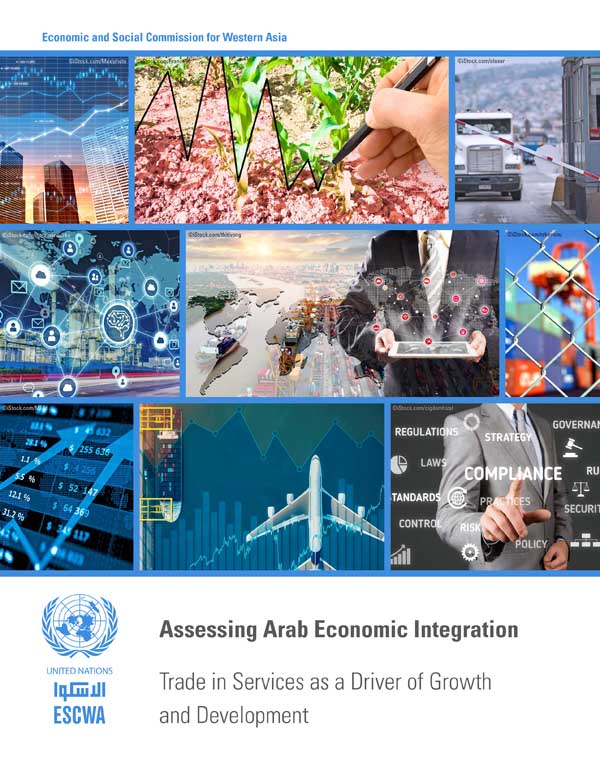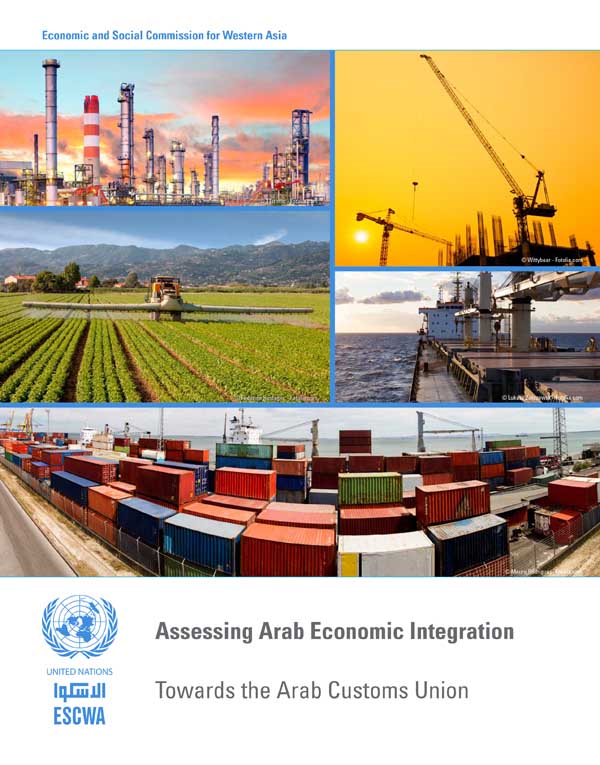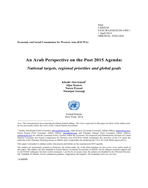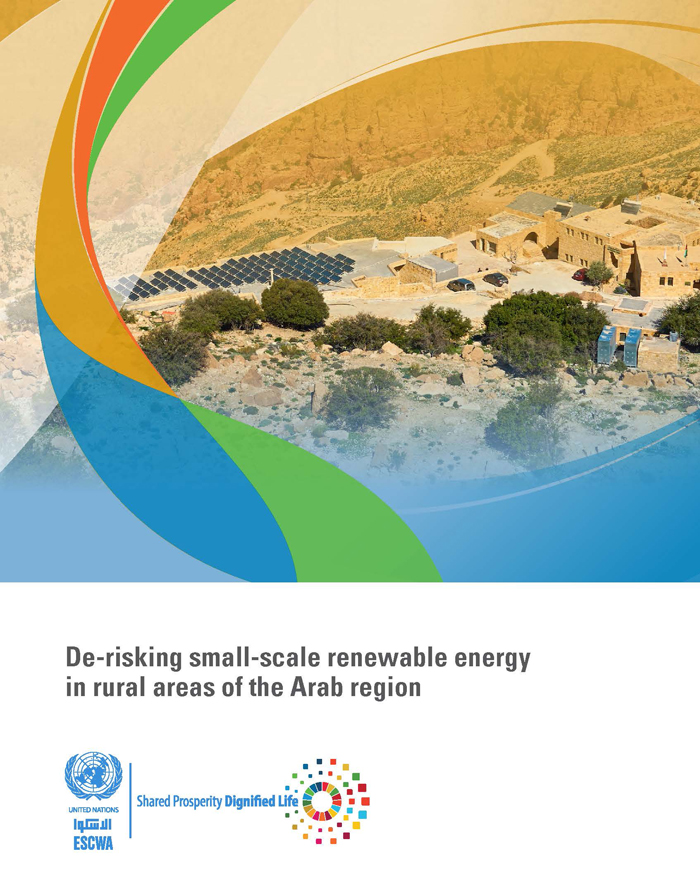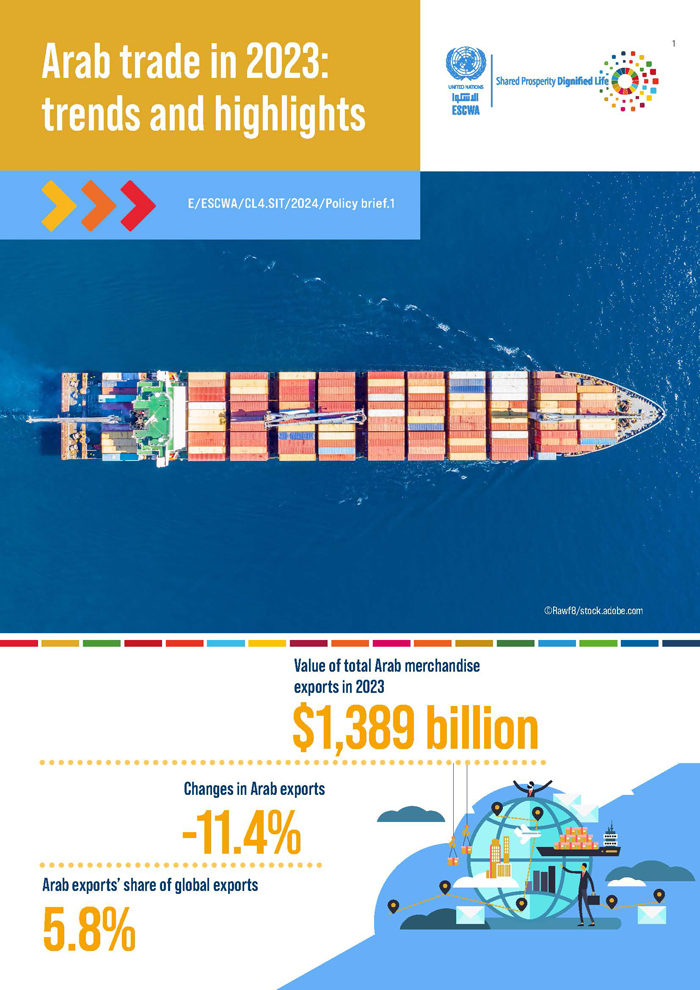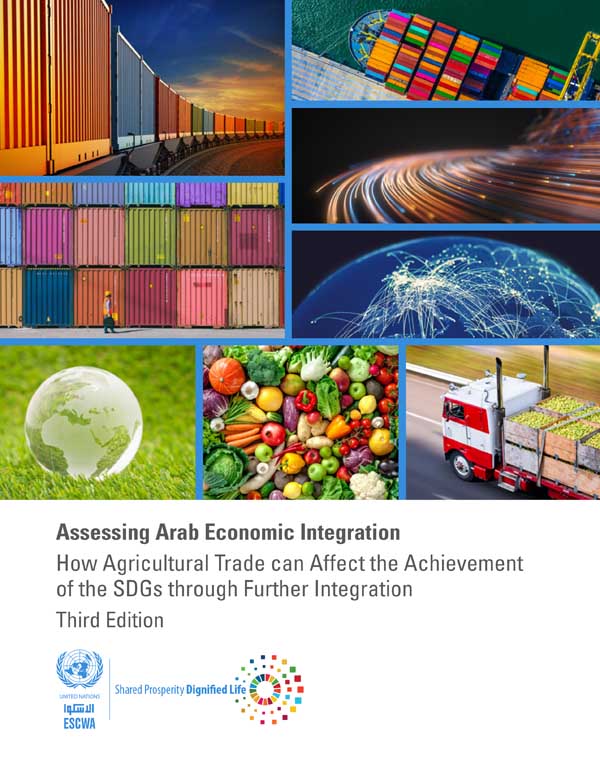
ESCWA Publication: E/ESCWA/EDID/2019/4
Country: Arab region
Publication Type: Reports & studies
Publication Subject: Assessing Arab Economic Integration
Cluster: Shared Economic Prosperity
Focus Area: Financing for development, Trade & regional connectivity
Initiatives: Enhancing resilience and sustainability of agriculture
SDGs: Agenda 2030
Keywords: Agriculture, Economic development, Economic integration, Trade liberalization, Agricultural development, Customs unions, Regional planning, Employment
Assessing Arab Economic Integration: How Agricultural Trade can Affect the Achievement of the SDGs through Further Integration Third Edition
January 2020
The severity of the COVID-19 pandemic and the scale of its impact across the Arab region highlight the need for collaborative economic integration that strengthens the region’s recovery and builds resilience to external shocks. The present edition of the Assessing Arab Economic Integration Report (AAEIR) examines trends in integration across the Arab region, focusing on the potential of agricultural integration to spur growth, employment and welfare, even in times of crisis. Farming is vital for rural livelihoods, food security and foreign exchange across the Arab region, taking on even greater importance given the production bottlenecks and agricultural disruptions caused by COVID-19. Diversifying sources of inputs and destinations of exports, and increasing the added value of food products will make the region more versatile and link in to onshoring, regionalism and value chain diversification trends across the globe.
AAEIR continues to make the case that economic integration is a realizable goal and an imperative for the Arab region in its path towards peace and shared prosperity. Regional institutions such as the Pan-Arab Free Trade Area and the Arab Customs Union provide avenues to harness shared assets and cement deeper partnerships across borders. The report serves as a call to action to move ahead with an ambitious integration agenda that will help Arab communities rebound from COVID-19, and progress towards inclusive and sustainable structural transformation.
Related content
Financing for development
, Trade & regional connectivity
,
The severity of the COVID-19 pandemic and the scale of its impact across the Arab region highlight the need for collaborative economic integration that strengthens the region’s recovery and builds resilience to external shocks. The present edition of the Assessing Arab Economic Integration Report (AAEIR) examines trends in integration across the Arab region, focusing on the potential of agricultural integration to spur growth, employment and welfare, even in times of crisis. Farming is vital for rural livelihoods, food security and foreign exchange across the Arab region, taking on even greater importance given the production bottlenecks and agricultural disruptions caused by COVID-19. Diversifying sources of inputs and destinations of exports, and increasing the added value of food products will make the region more versatile and link in to onshoring, regionalism and value chain diversification trends across the globe.
AAEIR continues to make the case that economic integration is a realizable goal and an imperative for the Arab region in its path towards peace and shared prosperity. Regional institutions such as the Pan-Arab Free Trade Area and the Arab Customs Union provide avenues to harness shared assets and cement deeper partnerships across borders. The report serves as a call to action to move ahead with an ambitious integration agenda that will help Arab communities rebound from COVID-19, and progress towards inclusive and sustainable structural transformation.
